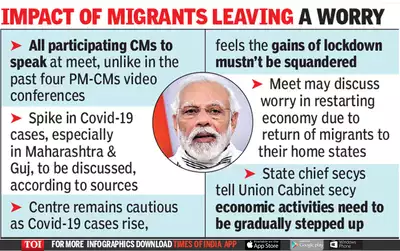Ahmedabad
(Head Office)Address : 506, 3rd EYE THREE (III), Opp. Induben Khakhrawala, Girish Cold Drink Cross Road, CG Road, Navrangpura, Ahmedabad, 380009.
Mobile : 8469231587 / 9586028957
Telephone : 079-40098991
E-mail: dics.upsc@gmail.com

India’s Economic Policy Agenda
News: The Chairman of the 16th Finance Commission recently stressed on the reform agenda to 10% growth for
the Indian Economy.
Status of India’s Economy at Present
GDP Growth: India’s GDP growth rate declined annually from 2016-17, and fell below 3.5% in the fourth
quarter of 2019-20.
• The GDP growth rate has been declining since 2016.
• However, the Indian economy is expected to recover with a GDP growth forecast for FY24 to be in
the range of 6-6.8%.
• The IMF has projected India’s real GDP growth as 6.7% for 2023-24 and 6.5% for 2024-25.
Fiscal Deficit: The interim Budget signals significant cutbacks in public expenditures, slashing effective
capital expenditure by ₹1 lakh crore and reducing welfare and subsidy allocations.
• The fiscal deficit, which was expanded to 9.2% of GDP in 2020-21 to deal with the pandemicinduced recession, would be brought down to 5.8% by the end of the current financial year and
5.1% by next year to reach the targeted 4.5% of GDP by 2025-26.
Economic Ranking: Recent IMF data show that India is ranked 4th in world’s GDP rankings in 2024,
just after the USA, China and Germany.
• India’s economy boasts diversity and swift growth, fuelled by key sectors such as information
technology, services, agriculture, and manufacturing.
Economic Performance: India aims to become a $5 trillion economy by 2024 has been questioned due
to the lack of a coherent policy structure.
Current Policies to Boost India’s Economy
India’s Evolving and Dynamic Policy Framework: It is designed to ease the entry of foreign direct
investment, streamline the financial system, dismantle redundant procedures and add transparency to the
process of doing business.
• As per the World Bank’s Ease of Doing Business, India is ranked 63 among 190 economies.
Diversification: India has implemented a range of policy initiatives in the areas of sustainable
development, infrastructural improvements, banking and financial services, job creation, digital
transformation, manufacturing and services industries in an effort to build a strong base for the Indian
economy.
Priority: It is keeping India on track as one of the world’s fastest growing economies so it can become
the second largest economy in the world by 2050.
Formalisation: India aims to expand the reach of the formal economy, thereby improving the informal
sector’s efficiencies and increasing the country’s tax base.
• It has taken measures to improve capacity to spend in the rural sector, infrastructure creation,
and inviting foreign investments.
Inclusive Growth: India has the twin objectives of inclusive growth and financial empowerment as the
centrepiece of its policy agenda for the country’s growth.
• Climate related Policy: Achieving net-zero emissions by 2070 could boost India’s economy by as much
as 4.7% above the projected baseline growth in GDP terms by 2036.
Emerging Challenges
Disruption caused by the pandemic: India’s potential growth may have slowed to 6% (from 7.1% YoY
estimated in 2017) due to longer-than-expected disruption caused by the pandemic, balance-sheet
concerns and a modest policy response by the government.
Regulatory Issues: These are related to trade policy, labour law implementation, and the long standing,
very long-term issue of the land markets.
• India’s economic growth is facing potential risks due to reform and policy barriers, according to
research by Moody’s Investors Service.
Geopolitical conflicts: There are many ongoing crises in the world that are impacting the global supply
chain that affects the emerging economy and market like India.
• End of hyper globalisation in global manufacturing, energy transition challenge, and advent
of Artificial Intelligence.
Future Outlook:
• Challenges before the economy are complex and multifaceted, and it requires a combination of policy
interventions, institutional reforms, and private sector initiatives.
• Political stability and policy consistency can pave the way for India’s ascent to becoming the third-largest
economy at a time of geopolitical uncertainties and risks to economic growth.

Address : 506, 3rd EYE THREE (III), Opp. Induben Khakhrawala, Girish Cold Drink Cross Road, CG Road, Navrangpura, Ahmedabad, 380009.
Mobile : 8469231587 / 9586028957
Telephone : 079-40098991
E-mail: dics.upsc@gmail.com
Address: A-306, The Landmark, Urjanagar-1, Opp. Spicy Street, Kudasan – Por Road, Kudasan, Gandhinagar – 382421
Mobile : 9723832444 / 9723932444
E-mail: dics.gnagar@gmail.com
Address: 2nd Floor, 9 Shivali Society, L&T Circle, opp. Ratri Bazar, Karelibaugh, Vadodara, 390018
Mobile : 9725692037 / 9725692054
E-mail: dics.vadodara@gmail.com
Address: 403, Raj Victoria, Opp. Pal Walkway, Near Galaxy Circle, Pal, Surat-394510
Mobile : 8401031583 / 8401031587
E-mail: dics.surat@gmail.com
Address: 303,305 K 158 Complex Above Magson, Sindhubhavan Road Ahmedabad-380059
Mobile : 9974751177 / 8469231587
E-mail: dicssbr@gmail.com
Address: 57/17, 2nd Floor, Old Rajinder Nagar Market, Bada Bazaar Marg, Delhi-60
Mobile : 9104830862 / 9104830865
E-mail: dics.newdelhi@gmail.com